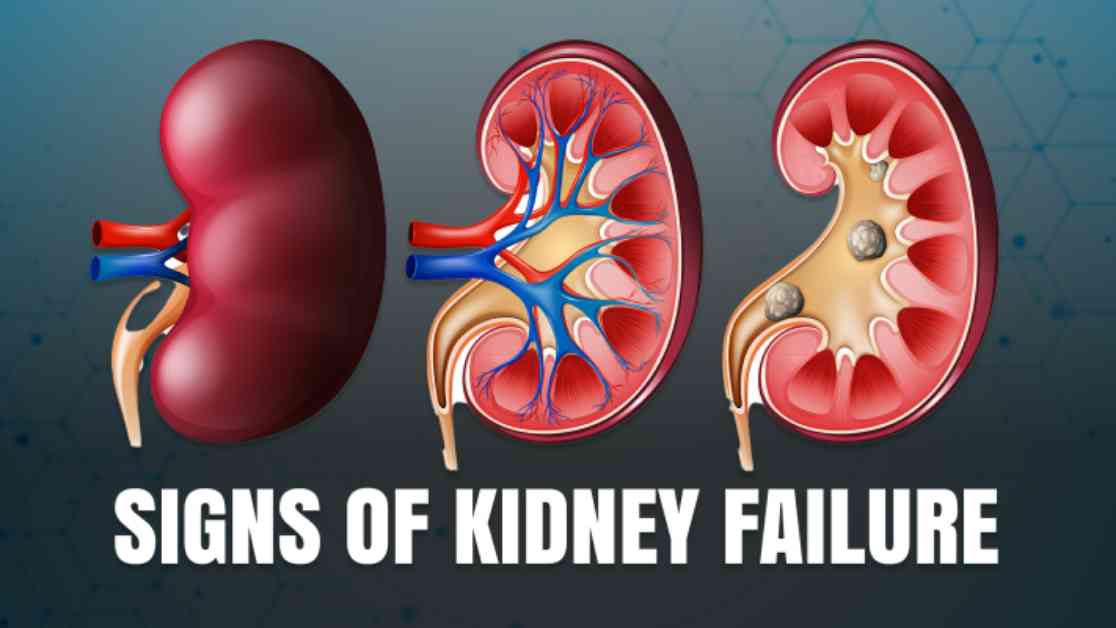Kidneys are essential organs that play a crucial role in filtering waste and maintaining overall health. However, when these vital organs begin to fail, the body often sends out warning signs. Recognizing these symptoms early on can be key in seeking timely medical attention and preventing further complications. In a recent study conducted by Dr. Smith from the National Kidney Foundation, it was found that early detection of kidney dysfunction can significantly improve patient outcomes and quality of life.
The Silent Signs of Kidney Dysfunction
One of the most common symptoms of kidney dysfunction is changes in urination patterns. This can manifest as increased frequency, especially at night, or difficulty urinating. Dr. Jones, a nephrologist at the renowned Mayo Clinic, emphasizes the importance of paying attention to these subtle changes, as they can be indicative of underlying kidney issues. He explains that the kidneys play a vital role in regulating fluid balance in the body, so any disruptions in urination patterns should not be ignored.
Another telltale sign of kidney dysfunction is swelling, also known as edema. This occurs when the kidneys are no longer able to effectively remove excess fluid from the body, leading to fluid retention and swelling in the feet, ankles, hands, or face. Dr. Patel, a kidney specialist at Johns Hopkins Medicine, notes that edema is often a visible symptom that prompts many patients to seek medical attention. However, he cautions that not all cases of swelling are related to kidney problems, so a proper diagnosis is crucial.
Seeking Timely Treatment and Care
In addition to changes in urination patterns and swelling, other symptoms of kidney dysfunction include fatigue, persistent pain in the back or sides, and unexplained weight loss. These signs may be subtle at first but can gradually worsen if left untreated. Dr. Garcia, a leading expert in nephrology, advises patients to be proactive about their kidney health and seek regular check-ups with their healthcare provider.
When it comes to diagnosis and treatment, early intervention is key in managing kidney dysfunction. Dr. Lee, a nephrologist at the Cleveland Clinic, highlights the importance of routine blood tests to assess kidney function and detect any abnormalities. In cases where kidney function is significantly impaired, dialysis may be necessary to help the body filter waste and toxins effectively.
In conclusion, being aware of the signs and symptoms of kidney dysfunction is essential for maintaining overall health and well-being. By staying informed and proactive about kidney health, individuals can take the necessary steps to prevent complications and seek timely medical attention when needed. Remember, your kidneys are vital organs that deserve care and attention to function optimally. So, listen to your body, watch for warning signs, and prioritize your kidney health for a healthier future.















